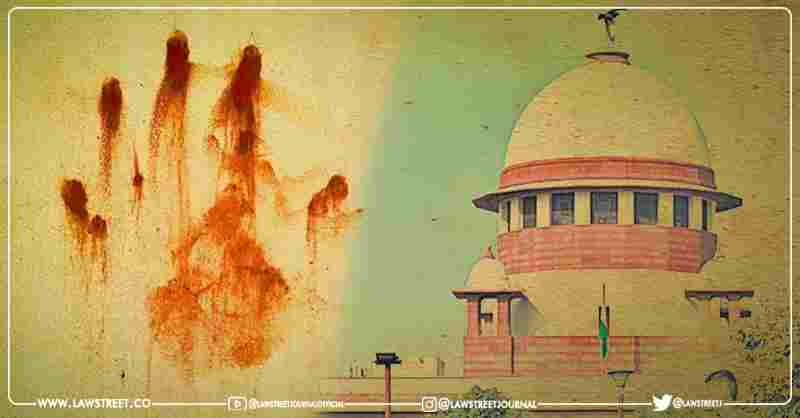On 18th January 2022, in the case of Bhagwani v. State of Madhya Pradesh, the Hon'ble Supreme Court commuted the death penalty of a convict belonging to a scheduled tribe community, to life imprisonment in the instance of rape and murder of a minor girl.
- While the trial court and the High Court considered the gravity of the crime, they failed to weigh mitigating factors such as the convict's socioeconomic background and the likelihood of reformation and rehabilitation, according to a bench of Justices L Nageshwar Rao, BR Gavai, and BV Nagarathna. The appellant-convict, however, will not be eligible for remission for another 30 years, according to the Court.
"The Appellant was 25 years old at the time of the offence, and he was a member of a Scheduled Tribes community who relied on manual labour for a living. The prosecution has not shown any evidence to establish that the Appellant has no chance of rehabilitation or reformation, hence the possibility of an alternative to the death penalty is ruled out. Before committing the offence for which he was convicted, the Appellant had no criminal history. Nothing negative has been mentioned about his behaviour while incarcerated. As a result, the death penalty must be converted to life imprisonment" the court observed
The appellant was charged with kidnapping and raping an 11-year-old girl, whose body was discovered with serious injuries. As per medical experts, the cause of death was neurogenic shock due to neck compression, severe injuries, and bleeding in the vagina and anal opening due to forcible rape.
The appellant's conviction and sentence by the Trial Court under Sections 363( Punishment for kidnapping), 366A( Procuration of minor girl) 364 (Kidnapping or abducting in order to murder), 346 (Wrongful confinement in secret), 302 ( Punishment for Murder), 201(Tampering of evidence) of the Indian Penal Code, 1860 ("IPC"), and Section 5(g)(m) read with Section 6 ( Aggravated penetrative sexual Assault ) of The Protection of Children from Sexual Offenses Act, 2012 ("the POCSO Act") The trial court found him guilty and sentenced him to death, and the Madhya Pradesh High Court maintained his conviction, leading this appeal to the Supreme Court.
According to the appellant he was not given a fair opportunity to defend himself. This is a classic case indicating the disturbing tendency of Trial Courts adjudicating criminal cases involving rape and murder in haste.
"This is a classic case showing the common pattern of Trial Courts adjudicating rape and murder cases in a hurry. It is well knowledge that an accused has the right to a fair trial, which is guaranteed under Article 21 of the Indian Constitution. The object and purpose of Section 235 (2) CrPC is to allow the accused an opportunity to make a representation against the punishment that would be imposed on him if the order of conviction and sentence are issued on the same day. To provide an adequate opportunity to the accused, a bifurcated hearing for convicting and sentencing is required. The accused must be given a reasonable opportunity to provide relevant evidence on the issue of a death sentence by the trial court". - Rajendra Pralhadrao Wasnik v. State of Maharashtra, (2019) 12 SCC 460
The Supreme Court found no error in convicting the appellant after weighing the opposing arguments and reviewing the evidence.
On November 3, 2017, the trial court issued a verdict condemning him. On the same day, the appellant was sentenced to death. The Court remarked that the trial court did not consider mitigating circumstances in sentencing the appellant to death in this case.
The Hon'ble Supreme Court, therefore, proceeded to commute the death penalty to life imprisonment.
"However, in light of the Appellant's barbarous and cruel manner in which he committed the rape and murder crimes against a helpless 11-year-old girl, the Appellant is sentenced to life in prison without the possibility of remission for a term of 30 years", the court-ordered.








